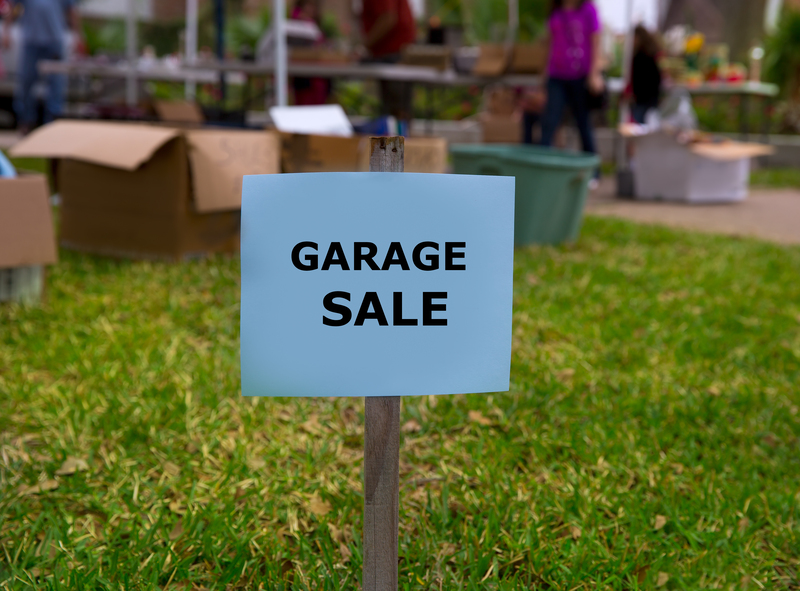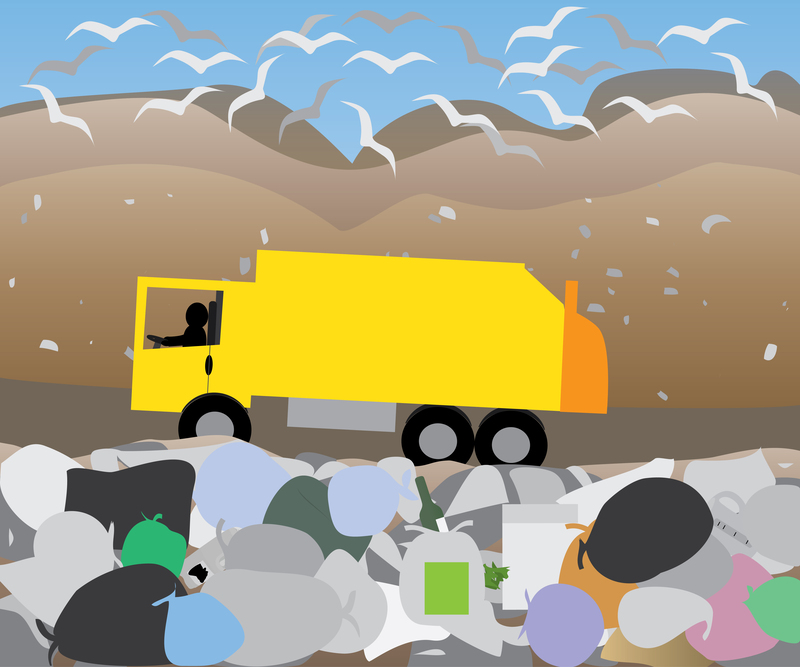How to Minimize Expenses When Handling Bulky Waste Items
Managing bulky waste items isn't just about making space; it's also about saving money and optimizing resources. From old furniture and mattresses to large appliances and construction debris, these items can cost a lot to dispose of if not handled strategically. This guide will explore the most effective methods for minimizing expenses when handling bulky waste items, helping you make informed, environmentally friendly, and budget-conscious decisions.

Understanding Bulky Waste: What Qualifies?
Before identifying cost-saving strategies for bulky waste disposal, it's important to clarify what falls under this category. Generally, bulky waste refers to items too large for regular curbside collection. Common examples include:
- Old furniture (sofas, tables, chairs, cabinets)
- Mattresses and bed frames
- Large appliances (refrigerators, washing machines, ovens)
- Electronics (TVs, computer monitors)
- Renovation debris
- Garden waste (tree branches, large trimmings)
Knowing what qualifies can help you make the best choices and avoid unnecessary expenses.
Factors That Influence the Cost of Bulky Waste Disposal
Disposing of bulky waste items at minimal expense requires an understanding of what drives costs. Major factors include:
- Volume and Weight: Larger and heavier items generally cost more to remove.
- Type of Material: Some materials (e.g., mattresses, electronics) may require special handling or recycling fees.
- Distance to Disposal Site: Transportation costs add up, especially if the landfill or recycling center is far away.
- Local Regulations: Municipalities may offer free collection or charge varied rates.
- Labor Requirements: Removing heavy or awkward items might require professional help, increasing costs.
How to Minimize Expenses When Disposing of Bulky Waste
1. Assess and Sort Your Items First
Start by making a comprehensive list of all your large unwanted items. Divide them into categories:
- Reusable (good condition, can be sold or donated)
- Recyclable (materials accepted by local recycling programs)
- True waste (no longer usable, damaged beyond repair)
Sorting items can help you find alternative disposal or reuse solutions, significantly reducing waste disposal costs.
2. Optimize Reuse and Donation Opportunities
Giving bulky items a second life is often the most cost-effective method. Consider the following:
- Donate to Charities: Organizations like Goodwill, Salvation Army, and local shelters often accept usable furniture and appliances. Some even offer free pickup services.
- Community Giveaways: Use online platforms like Freecycle, Craigslist, Nextdoor, or Facebook Marketplace to give items away for free. This not only helps someone in need but also saves you money on removal fees.
- Host a Garage Sale: Even worn furniture or appliances can be sold for a fraction of their cost, offsetting some of your bulky item removal expenses.
3. Break Items Down Whenever Possible
Disassembling large pieces of furniture makes them easier and cheaper to transport or dispose of. For example:
- Mattresses: Many localities charge more for intact mattresses. Cutting them into smaller pieces may allow for inclusion in regular trash.
- Furniture: Remove legs, cushions, or break into panels to fit into curbside bins or vehicles.
- Appliances: Remove non-metal components to recycle metal parts separately (often free at scrapyards).
Taking time to break down items often reduces your overall bulky waste disposal fees.
4. Take Advantage of Municipal Bulky Waste Collection Services
Many cities and towns offer periodic free large-item pickups. Tips include:
- Check the Schedule: Look up your local public works or waste management calendar for bulky item collection days.
- Register in Advance if Needed: In some areas, you may need to schedule your pickup.
- Follow Regulations: Prepare the items according to size or bundling restrictions to avoid extra charges.
Utilizing municipal removal programs is often the most affordable option for disposing of unwanted large items.
5. Rent a Dumpster Only If Necessary
While dumpster rentals are useful for major cleanouts or renovations, they can be costly. Save money by:
- Sharing Costs with Neighbors: Organize a group cleanup project and split the rental fee.
- Selecting the Right Size: Avoid overpaying for unused capacity. Always get an accurate estimate of volume.
- Filling Efficiently: Break down items and load tightly to maximize capacity.
For smaller cleanups, removal bags or smaller roll-off bins may suffice - these are often significantly cheaper.
6. Explore Private Junk Removal Companies (With Caution)
Private junk removal services offer convenience but vary widely in price. To get the best deal:
- Compare Quotes: Request detailed estimates from at least three reputable providers.
- Ask About Itemized Pricing: Some companies charge more for items like mattresses, TVs, or paint.
- Time Your Pickup: Book during less busy periods (midweek or offseason) when discounts may be available.
- Bundle Items: Minimize costs by having everything ready for pickup in one trip, rather than multiple visits.
Always check for ratings and reviews - reliable junk haulers can sometimes donate or recycle items to further cut disposal costs.
7. Consider DIY Disposal at Landfill or Recycling Facilities
If you have access to a vehicle and can lift items safely, direct delivery to local landfills or recycling centers is often far cheaper than professional services. Here's how to maximize savings:
- Research Fees: Many facilities have discounted rates for residents or smaller quantities.
- Sort Materials: Separate recyclables (metal, electronics, wood) -- some categories are accepted for free.
- Carpool Loads: Combine trips with neighbors or family to split transportation costs.
- Check Special Events: Some towns have "Free Dump Days" for certain types of waste.
Always bring ID or proof of residency for lower rates and observe safety rules when transporting heavy loads yourself.
8. Maximize Potential for Recycling
Major appliances, scrap metal, and many electronics can be recycled at specialized facilities, often at no charge. Additional tips:
- Metal Scrap Yards: Receive payment for ferrous and non-ferrous metals from old appliances or furniture frames.
- Electronics Stores or E-Waste Events: Retailers or periodic community events accept computers, TVs, and other electronics for free, keeping them out of costly landfill streams.
- Mattress Recycling: Dedicated programs exist in many cities -- check Earth911.com or local waste management sites.
Maximizing recycling reduces landfill volume and overall disposal costs.
9. Avoid Prohibited and Hazardous Items
Certain bulk waste types carry extra fees or require special handling due to safety or environmental risks. Avoid disposing of:
- Chemicals, paint, or automotive fluids
- Asbestos or hazardous construction debris
- Batteries or mercury-containing products
Instead, visit your local household hazardous waste facility or participate in special collection days. Improper disposal can result in heavy fines and costly cleanup.
Advanced Tips to Save Money on Bulky Waste Disposal
Leverage Community Clean-Up Drives
Many neighborhoods organize bulk waste collection days where residents are allowed to leave large items curbside for free pickup. Participation in these drives can save you substantial removal and disposal expenses. Stay informed by checking local municipal websites or neighborhood newsletters.
Use Social Media to Offload Items for Free or Cheap
The digital era offers numerous peer-to-peer platforms where bulky items change hands rapidly. Post listings with clear pictures and descriptions and mark items as "free for pickup." You may be surprised how quickly someone will collect your old couch, saving you time and money.
Repair or Refurbish Damaged Items
If you have usable repair skills, fixing up broken furniture or appliances may increase their value for donation or resale. Even a simple cleaning or tightening of screws can make an unwanted dresser desirable for someone in your community.
Stay Informed about Local Regulations and Resources
Every city or county has unique rules for large waste item disposal. Familiarize yourself with:
- Permit requirements
- Weight or size limits
- Community recycling programs
- Special days for discounted or free bulky item drop-off
Being informed prevents you from incurring unnecessary fines or additional fees.
Environmental Benefits of Smart Bulky Waste Management
Minimizing your bulky waste disposal costs doesn't just help your wallet; it benefits the environment. Here's how:
- Reduces landfill waste
- Promotes material reuse and recycling
- Decreases illegal dumping
- Encourages a circular economy
By following the practical steps outlined above, you contribute to a healthier, more sustainable community.
Summary: The Most Affordable Ways to Dispose of Bulky Waste
- Donate, sell, or give away items first before considering disposal.
- Utilize municipal free bulk waste pickups when available.
- Disassemble large items to reduce size and possibly qualify for regular trash collection.
- Recycle whenever possible to avoid landfill fees and environmental harm.
- Shop around for the best junk removal quotes and combine removal loads.
- Transport waste yourself to disposal sites when practical and safe.
Smart planning, a little effort, and community resources are your best allies in minimizing expenses when handling bulky waste items.

Frequently Asked Questions about Bulky Waste Items
What is the cheapest way to get rid of a bulky waste item?
Donating or giving away usable items is typically the most affordable option. For true waste, check if your municipality offers free bulk pickup services or community disposal events.
Can I put bulky waste items in regular trash bins?
In many cities, large items like sofas or mattresses are not accepted in curbside bins. Always confirm with your local waste management authority for approved bulky item disposal methods to avoid fines or missed pickups.
Does recycling bulky items save money?
Yes -- recycling metal items, electronics, and appliances can be cheaper than landfill disposal and sometimes even net a small profit at certain scrap yards or recycling centers.
Are junk removal services worth the cost?
Junk removal companies add convenience but can be costly for multiple items. Save money by pricing out several providers, bundling your load, or opting for municipal services first.
Conclusion: Save Big by Smarter Bulky Waste Handling
Handling bulky waste items doesn't have to strain your budget. By maximizing reuse, leveraging community programs, identifying recycling opportunities, and carefully choosing your disposal method, you can minimize expenses for bulky waste disposal while supporting sustainability. Start with a strategic assessment, make use of local resources, and always seek environmentally responsible solutions -- your wallet and the planet will thank you.
